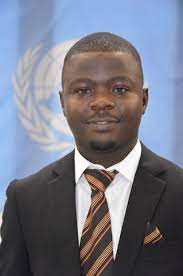The programmes director of the Institute of Paralegal Training and Leadership Studies (IPTLS), Isaac Asare has indicated that it is lawful for any individual with a sound mind to mediate a dispute between two parties.
He said this makes the resolution of disputes very cheap and easy as compared to the court system.
According to Mr. Asare, however, unless one is trained, an individual does not become a professional ADR practitioner.
The ADR expert said this when he was educating the general public on the ‘Effective use of ADR’ on GTV’s breakfast show on Thursday, March 17, 2022.
The discussion is part of a series of sensitization on ADR; a component of the implementation of the United States Agency of International Development’s (USAID) funded Justice Sector Support Activity (JSSA).
Mr. Asare urged the public to consult community leaders, opinion leaders to mediate their differences to resolve disputes when they are unable to access the services of a trained mediator.
“There are many institutions and practitioners across the country that offer ADR services. But if you are unable to get the services of a trained practitioner seek counsel from opinion leaders. Only disputing parties can choose an individual to mediate their differences and it is backed by law,” he explained.
He advised the public to hesitate to go to court to seek redress but opt for ADR services as it preserves peace in society.
“Even on the phone one can resolve a dispute through mediation. This makes the mechanism cost-effective and flexible so do not rush to the courts to settle matters,” he urged.
Mr. Asare mentioned the Centre for Citizen Empowerment and the Ashaiman Mediation Centre as some of the places to access ADR services.
USAID Justice Sector Support Activity
The USAID Justice Sector Support Activity (JSSA) aims at increasing citizen knowledge and access to Justice Sector services, strengthening advocacy interventions for accountability of key Justice Sector Institutions to improve justice delivery, and increasing citizens’ oversight and monitoring of criminal cases to enhance justice delivery.

















































